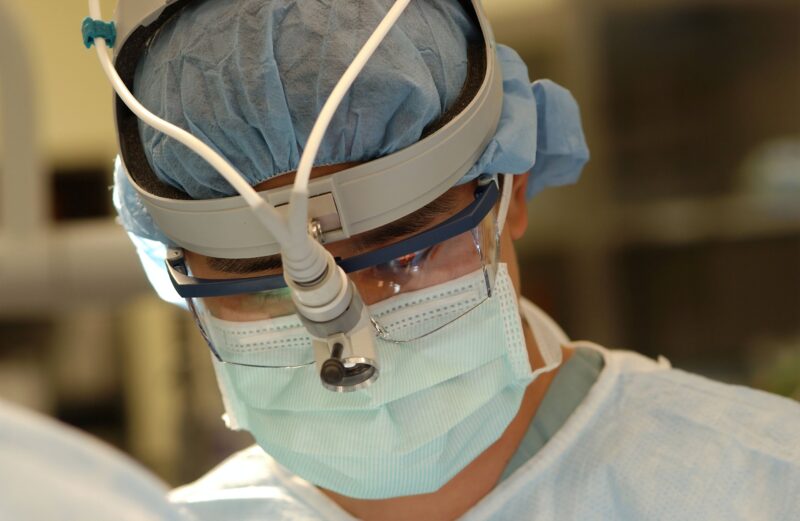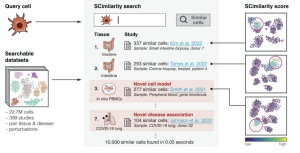Urine test halves painful procedures in bladder cancer follow up, new trial shows

A simple urine test can more than halve the number of cystoscopies necessary to follow up high-risk bladder cancer patients, new research has found.
Cystoscopies involve inserting a flexible probe through the urethra into the bladder, which allows a clinician to look at the bladder lining for signs of cancer. While they are predominantly safe procedures, cystoscopies do incur some risk of urinary infections and bleeding. They can also cause pain and discomfort.
Initial results from a two-year study, presented 6 April 2024 at the European Association of Urology Congress in Paris, suggest that there is also no increased risk of recurrence in patients who had a urine biomarker test rather than a standard flexible cystoscopy. Full results on this aspect of the trial are expected in the summer.
The study was carried out in Denmark, where post-surgical follow up for high-risk bladder cancer recommends cystoscopies every four months for two years. In the UK, patients undergo even more frequent cystoscopies: every three months for two years.
High-risk patients with the most aggressive form of bladder cancer have a 60–70% likelihood of cancer returning within five years post-surgery, which is why follow up for these patients is so intensive.
The new research is the first time a urine biomarker test has been assessed in a randomized interventional controlled trial with high-risk patients. This trial design allowed the researchers to assess whether the test could reduce the number of cystoscopies patients had to undergo, as well as picking up any signs of returning cancer. Previous studies have only assessed biomarker tests observationally, adding the biomarker tests to existing standard of care.
Thomas Dreyer, a researcher at the Bladder Cancer Research Team, Dept of Urology, Aarhus University Hospital, who carried out the study for his Ph.D., said, “There have been lots of studies of urine biomarker tests showing positive results, but no randomized trial to show what the impact would actually be in the clinic. We were confident the test was sensitive enough to not provide false negatives that put patients at risk. But would it provide false positives and actually result in equal or even higher numbers of cystoscopies being carried out? Our findings show that wasn’t the case.”
The researchers, from Aarhus University Hospital in Denmark, recruited 313 patients. Half were randomized to receive the standard three cystoscopies per year. The other half were randomized to receive just one cystoscopy per year, with their remaining two follow up cystoscopies replaced with the Xpert Bladder Cancer Monitor test, a urine biomarker test.
The test monitors for recurrence of bladder cancer by measuring levels of five target mRNAs, or genetic markers. The researchers chose to trial this particular biomarker test as it had previously shown promising results in high-risk bladder cancer patients.
Any patients who received a positive result on their urine test were called into hospital for a cystoscopy to check for evidence of the cancer returning. The urologists undertaking the cystoscopy were aware of the positive result, as they would be in normal practice.
After two years, for patients receiving primarily the urine test, just under 44% of follow up appointments involved a cystoscopy, compared to nearly 100% in those receiving standard treatment.
The researchers also found strong evidence that the urine test could pick up cancer recurrence before any disease was visible through the cystoscopy. For more than half of the patients who had a ‘false positive’ test—that is, the biomarker test showed positive but the cystoscopy was clear—the researchers found evidence of recurrence at a later visit.
“We know that many patients really dread their cystoscopy appointments, but are prepared to go through with them because they want to be sure they are free of the cancer,” said Thomas Dreyer. “However, if given the option of providing a urine sample instead of undergoing an uncomfortable medical procedure, most would choose that, so long as they were confident that it was just as effective.”
Joost Boormans, Professor of Urology at Erasmus University Medical Center in Rotterdam and member of the EAU Scientific Congress Office said, “We know as urologists, we carry out too many cystoscopies, particularly during follow up of patients with non-muscle-invasive bladder cancer, so we need to find alternatives. Bladder cancer is a disease that particularly affects the elderly, and we foresee an increasing number of patients due to the aging population, which could impact on the numbers able to access care.”
“This trial shows us a possible means of reducing cystoscopies. If the final results later this year do confirm that the urine test can pick up cancer recurrence as effectively as cystoscopies, then this is something we need to look at introducing into clinical practice as soon as possible, because it reduces demand on our resources and helps to make health care more accessible.”
The trial was independently conceived and designed by the team at Aarhus University.
More information:
“Reducing the number of flexible cystoscopies in patients undergoing follow-up for non-muscle invasive bladder cancer with either flexible cystoscopy or the urinary biomarker test Xpert Bladder Cancer Monitor: a secondary outcome from a randomized clinical trial,” by Thomas Dreyer et al is presented by Dr. Dreyer on Saturday 6 April, 2024.
Citation:
Urine test halves painful procedures in bladder cancer follow up, new trial shows (2024, April 5)
retrieved 8 April 2024
from https://medicalxpress.com/news/2024-04-urine-halves-painful-procedures-bladder.html
This document is subject to copyright. Apart from any fair dealing for the purpose of private study or research, no
part may be reproduced without the written permission. The content is provided for information purposes only.







